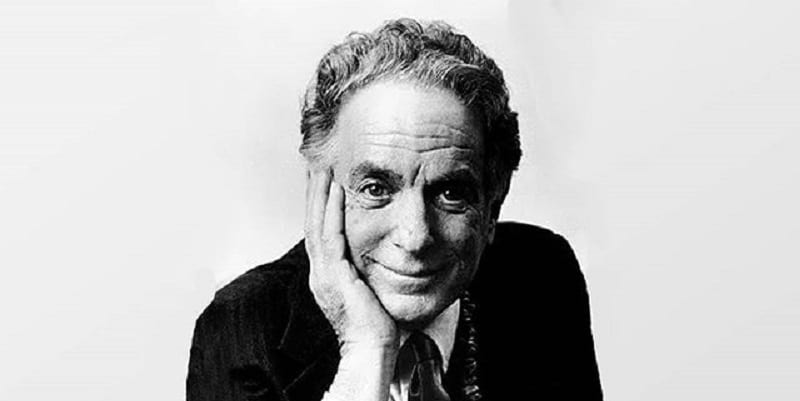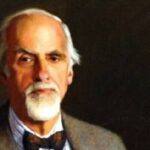Frederick Herzberg biography and books

Frederick Herzberg (1923-2000) was a clinical psychologist and is one of the major writers in management and motivational theories. Frederick Herzberg was one of the most influential management teachers and consultants of the post-world war II. His approach focuses on content theories and explains specific things that motivate an individual at work. Frederick Herzberg is recognized by his book The Motivation to Work (1959) and by the Two Factor theory.
Biography Frederick Herzberg
Frederick Herzberg received his Ph.D. in psychology in 1950 and studied at the City College. He was offered a fellowship to attend the Graduate School of Public health at the University of Pittsburgh where he studied clinical and abnormal psychology.
His interest was in industrial mental health, but he soon discovered that the concepts of industrial mental health were a restatement of his previous study. Because of this, Frederick Herzberg entitled his thesis ‘Mental Health Is Not the Opposite of Mental Illness.’
He became a professor of psychology at Case Western Reserve University and simultaneously started focusing his research on the workplace. In this time, he established the Department of Industrial Mental Health. Frederick Herzberg later moved to the University of Utah where he was a professor of Management.
Frederick Herzberg consulted many companies, including both multinationals such as AT&T, the government of the United States, and foreign governments.
He was one the first American consultants that studied workers in the Soviet Union and worked many times abroad in countries such as Israel and Japan.
Frederick Herzberg has also worked as a research director for Psychological Services of Pittsburgh. Suddenly on a day, an annoyed industrial worker asked him ‘What do people want from their jobs’? This question had triggered Frederick Herzberg to design a study to test a hypothesis that job satisfaction and job dissatisfaction were separate concepts.
In 1959, Herzberg proposed his Two Factor theory. It was derived from Maslow’s Hierarchy of Needs and states that human needs are arranged in a series of levels in a hierarchy of importance which causes motivation.
Frederick’s theory was first published in his book ‘The Motivation to Work’ in 1959. Even though he focused on individuals at the workplace, the theory has been popular with managers who recognized the importance of management knowledge and expertise.
In 1967, Frederick Herzberg’s publication One More Time, How Do You Motivate Employees? has sold more than one million reprints by 1987 and it was the most requested article from the Harvard Business Review.
Currently, today’s managers agree that Frederick Herzberg’s Two Factor theory provides guidelines to motivate a team. It stimulates improvements in the Psychological contract which means the relationship between an employer and its employees with regards to mutual expectations of inputs and outcomes. In addition, his theory can be applied to various types of organizations and to support management’s position.
Famous quotes
- “If you want someone to do a good job, give them a good job to do.”
- “It’s the job of a manager not to light the fire of motivation, but to create an environment to let each person’s personal spark of motivation blaze.”
- “Idleness, indifference and irresponsibility are healthy responses to absurd work.”
- “You cannot love an employee into creativity, although you can … avoid his dissatisfactions with the way you treat him.”
- “True motivation comes from achievement, personal development, job satisfaction, and recognition.”
- “Man does work for profit in order to enjoy pain; but in a positive sense, he works to enjoy the excitement and meaning that achievement provides for his own psychological growth and thereby his happiness.”
- “It is only when a person has his own generator that we can talk about motivation. He then needs no outside stimulation. He wants to do it.”
- “I can charge a man’s battery, and then recharge it, and recharge it again. But it is only when he has his own generator that we can talk about motivation. He then needs no outside stimulation. He wants to do it.”
Books, publications and journals by Frederick Herzberg et al.
- 2011, 1993, 1967. The motivation to work. Transaction publishers.
- 2005. Motivation-hygiene theory. J. Miner, Organizational Behavior I: Essential Theories of Motivation and Leadership, 61-74.
- 1987. Workers’ needs: the same around the world. Industry week, 21(9), 29-30.
- 1987. Innovation: Where is the relish?. The Journal of Creative Behavior, 21(3), 179-192.
- 1986. One more time: How do you motivate employees. New York: The Leader Manager, 433-448.
- 1980. Humanities, Practical management education. Industry Week, 206(7), 69-72.
- 1979. New Perspectives in the Will to Work. Personnel Administrator, 24(12), 72-76.
- 1979. Motivation and innovation: who are workers serving?. California Management Review, 22(2), 60-70.
- 1976. Orthodox Job Enrichment: Measuring True Quality in Job Satisfaction. Personnel, 53(5), 54-68.
- 1974. Wise Old Turk. Harvard Business Review, 52(5), 70-80.
- 1974. Motivation-hygiene profiles: Pinpointing what ails the organization. Organizational Dynamics, 3(2), 18-29.
- 1974. Motivation-hygiene correlates of mental health: An examination of motivational inversion in a clinical population. Journal of consulting and clinical psychology, 42(3), 411.
- 1971. Relevancy in the test of motivator-hygiene theory. Journal of Applied Psychology, 55(1), 73.
- 1971. Managers or animal trainers. Management Review, 60(7), 2-15.
- 1969. Job enrichment pays off. Harvard Business Review, 47(2), 61-78.
- 1966. l One More Time: How Do You. World, 88.
- 1966. Work and the nature of man.
- 1965. Job attitudes in the Soviet Union. Personnel Psychology, 18(3), 245-252.
- 1965. The new industrial psychology. ILR Review, 18(3), 364-376.
- 1965. The motivation to work among Finnish supervisors. Personnel Psychology, 18(4), 393-402.
- 1964. The motivation-hygiene concept and problems of manpower. Personnel Administration.
- 1963. The motivation-hygiene concept and psychotherapy. Mental hygiene, 47, 384.
- 1962. Basic needs and satisfactions of individuals. Industrial Relations Monograph, (21), 73-79.
- 1962. New approaches in management organization and job design. Industrial Medicine and Surgery, 31, 477-481.
- 1961. A motivation-hygiene concept of mental health. Mental Hygiene, 45, 394-401.
- 1959. Work and motivation. Behaviour science concepts and management application: Studies in personnel policy, 216.
- 1954. Temperament measures in industrial selection. Journal of Applied Psychology, 38(2), 81.
- 1954. A study of sex differences on the Primary Mental Abilities Test. Educational and Psychological Measurement, 14(4), 687-689.
- 1954. Prognostic variables for electro-shock therapy. The Journal of General Psychology, 50(1), 79-86.
- 1954. A further study of the stability of the Kuder Preference Record. Educational and Psychological Measurement, 14(2), 326-331.
How to cite this article:
Zeeman, A. (2017). Frederick Herzberg. Retrieved [insert date] from Toolshero: https://www.toolshero.com/toolsheroes/frederick-herzberg/
Original publication date: 01/03/2017 | Last update: 03/09/2023
Add a link to this page on your website:
<a href=”https://www.toolshero.com/toolsheroes/frederick-herzberg/”>Toolshero: Frederick Herzberg</a>











